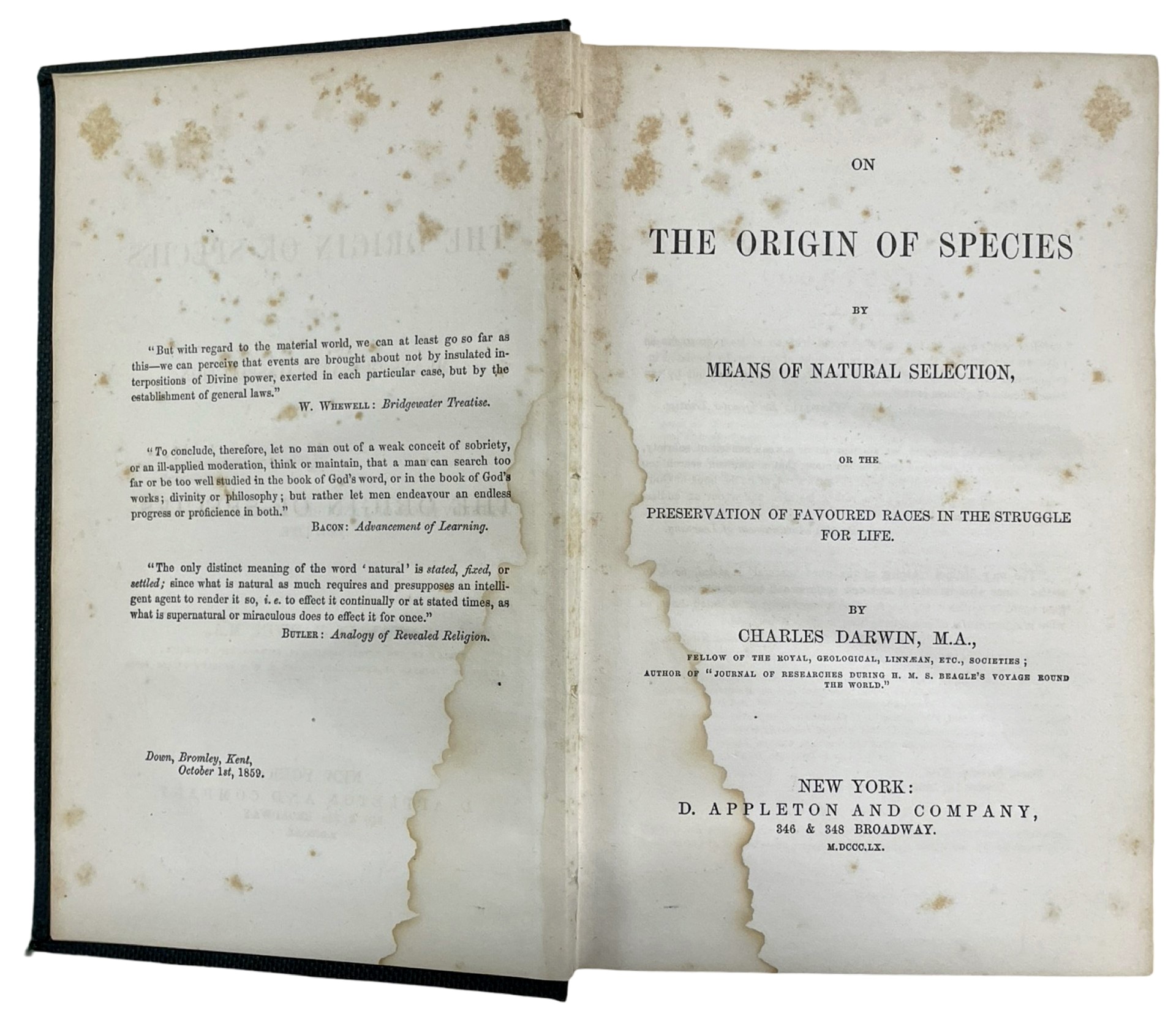

01/08/2024 General News
There are some people in history who have become so universally known that it can be hard to think of them as real people, writes Emily Ayson. Often their achievements or their historical impact outshine the fact that they, like all of us, were human beings.
So it is always fascinating to catch a glimpse of their personal selves, almost always through what they wrote during their lives.
Although it shouldn’t be, it is sometimes surprising to see an idea or a concept which we take for granted in the form in which it was first written. The author at that stage perhaps didn’t know that what they were writing would be world-changing; they may even have believed they would struggle to find a publisher.
I was struck by this when a first US edition of Charles Darwin’s ground-breaking ‘On The Origin Of Species By Means Of Natural Selection’ came up for auction at Keys’ June Book Sale. Published in January 1860, just two months after the book was first published in the UK – this is the book which is considered the foundation of evolutionary biology.
Written for non-scientific readers as much as biologists, it unsurprisingly attracted huge interest, not all of it supportive. But within two decades there was widespread agreement there was widespread agreement among scientists that evolution had occurred, although it took until the 1930s before Darwin’s theory of natural selection was more generally accepted.
This, then is a genuinely historic book, and unsurprisingly there was brisk bidding from collectors around the world wanting to own this very personal piece of history.
This isn’t the first time that such a trailblazing volume has come up for auction in our salerooms. Just a first English edition of Albert Einstein’s ‘Relativity – The Special and The General Theory’ came up for auction at Keys, another transformative piece of thinking which went on to be arguably the single most important piece of science of the 20th century.
Published in 1916 in Germany, his ‘Relativity – The Special and The General Theory’ started off as a short scientific paper, but soon became a whole book. It was the first time that Einstein had put on paper the two theories which would transform theoretical physics and astronomy during the 20th century, superseding a 200-year-old theory of mechanics created primarily by Isaac Newton.
It was four years before the book was translated into English, published by Methuen & Co Ltd in 1920. Like Darwin’s book, it was intended to introduce the extremely complex thinking behind the theory to non-scientists.
Einstein wrote, ‘The present book is intended, as far as possible, to give an exact insight into the Theory of Relativity to those readers who, from a general scientific and philosophical point of view, are interested in the theory, but who are not conversant with the mathematical apparatus of theoretical physics.’
In an age of television and social media, today’s iconic figures are ubiquitous and accessible to us all. For those from the past, their writings – and especially their transformative works – are the things which offer us the greatest insight into them as people, as much as the ideas which have become part of our accepted thinking. So there will always be a healthy demand for such writings in the saleroom.
Keys’ Book Sales take place quarterly. For full details, visit www.keysauctions.co.uk.